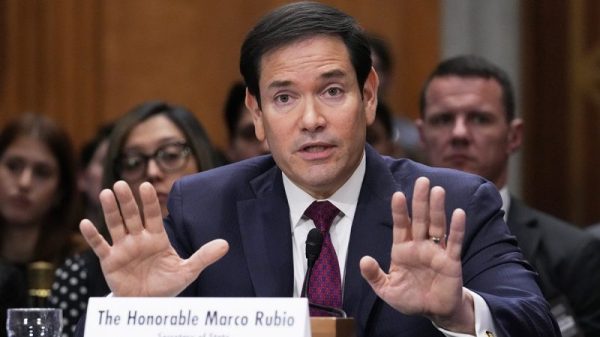From obscure academic topic to major campaign issue, ESG (Environmental, Social, and Governance) investing has erupted onto the political scene. Projections indicate ESG fund assets will balloon from around $20 trillion in 2022 to a staggering $40 trillion by 2030.
Our new paper in the Santa Clara Journal of International Law examines whether market forces or government interventions drive ESG’s rise. We conclude that government policies, rather than investor preferences, primarily fuel ESG.
Governments worldwide have imposed numerous ESG-related regulations, with many more in progress or under consideration. In fact, governments activate the surge in ESG as forward-looking investors aim to divest from soon-to-be penalized sectors such as oil, natural gas, or firearms.
In a level playing field, ESG-weighted portfolios struggle against market-tracking index funds, which provide better diversification and risk reduction. Government regulations mandating climate-related disclosures benefit ESG funds by reducing investor options, making securities in ESG portfolios more attractive than they would be under (more) perfect competition.
Whether market pull or government push drives ESG also affects interpretation of the emergent “anti-ESG” movement. Are the several states limiting or banning investment of state dollars, including public pensions, in ESG restricting investor freedom, or protecting investors from predation by other governments?
We document the diverse government measures pushing ESG integration within financial markets. Governments are unleashing an entire policy arsenal, including mandates, regulations, taxes, and subsidies.
Government emissions reduction commitments under the Paris climate treaty drive the renewable energy transition in the European Union, Australia, and the United States. The European Union and the US offer various tax credits and grants for clean-energy projects and energy-efficient improvements.
The Biden Administration is subsidizing wind, solar, electric vehicles, and charging stations and imposing more stringent emissions standards for new vehicles and power plants. An executive order from President Biden led to ESG actions by the Financial Stability Oversight Council, the Securities and Exchange Commission, and the Department of Labor.
Additionally, most states have renewable portfolio standards requiring utilities to obtain a substantial portion of their electricity from renewable sources like wind and solar, with some states targeting 100 percent renewable generation.
Conversely, governments also impose disincentives, like taxes or bans on petroleum, plastic packaging, and fertilizers.
The European Union leads on ESG with its Green New Deal, Climate Law, and new reporting standards mandating emissions reductions. The European Sustainability Reporting Standards mandate ESG disclosures and audits. Similar mandates to disclose climate data, diversity metrics, and sustainability practices were implemented or proposed in the United Kingdom, France, Canada, and Australia.
Governments increasingly mandate disclosure of ESG data like carbon emissions or board diversity. While private organizations like the Climate Disclosure Standards Board aim to voluntarily standardize ESG ratings, governments force disclosures. Over 60 jurisdictions, including all G20 members, mandate ESG disclosure, mainly through financial regulations or stock-exchange listing rules.
Efforts like the Task Force on Climate-Related Financial Disclosures, supported by major financial institutions and institutional investors, demonstrate a global push for enhanced climate-related disclosures in the financial sector.
ESG requirements for corporations listed on stock exchanges have become commonplace. Both the NASDAQ and Dow Jones introduced board diversity rules and sustainability indices. Stock exchanges are technically private but heavily regulated, and governments have pushed these rules. European stock exchanges have imposed similar rules.
Financial markets were highly regulated long before ESG emerged. So, we investigated whether regulations merely granted regulatory permission for investors interested in socially responsible investing. The Department of Labor’s permitting pension investments in ESG is one of the only accommodating measures, although it raises questions about fiduciary duty. Overwhelmingly, the regulations are like the SEC’s climate reporting mandate.
In the past year, prominent financial institutions have backpedaled on ESG, with net outflows from ESG funds. This divestment suggests that financial institutions may have overestimated market demand for ESG. It also validates our assessment: Governments have been driving ESG all along.





































